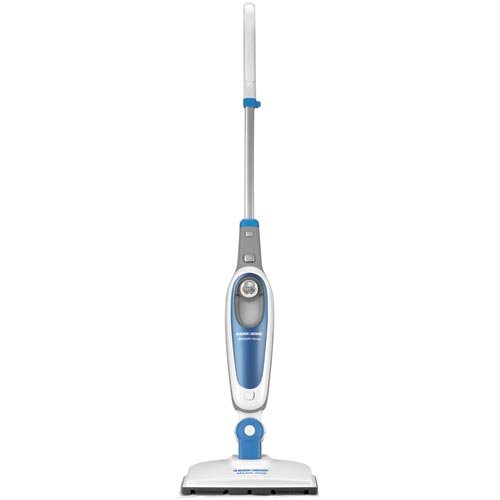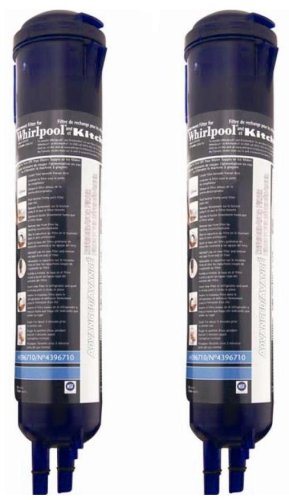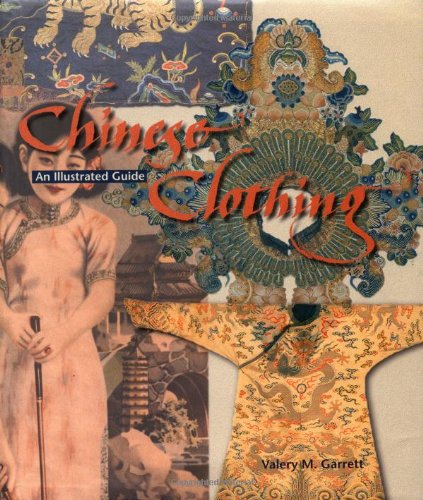The attraction of licensing trademarks for business intentions appears to be at an all-time high, mostly in the fashion arena where consumers are buying more licensed products and brand names than ever before. For retailers, licensing opportunities provide them with a point of difference from their competitors.
Licensing is leasing a legally protected property (like trademarked or copyrighted name, logo, likeness, character, phrase or design) to another party in combination with a product, service or promotion. It is a process which lays stress on consumer management, development of brand equity in line with international imagery, providing right shopping ambience and perhaps is less about manufacturing. Licensing is a way of growing with an already established brand. It provides the brand recall benefits, which are not achievable in case one comes out with a brand new image.
There are many types of licensing business like art & design, corporate brands, events, fashion brands, food & drink, institutional, magazine brands, music, personalities, sports and television licensing to name a few.
The advantages of licensing for licensors
The main advantage for a licensor is the facility to use and develop its brand or property.
Licensing can achieve this by:
. Improving its brand existence at a retail or distribution outlet.
. Making further brand perception to support its core products or services.
. Providing and increasing its core values through various links with the licensed products/service or category.
. Coming into new markets (consumer or geographical) which were unfeasible with its own strengths.
. Making new revenue flows, often with little involvement or additional financial resources
The advantage of licensing for licensees
The main advantage for a licensee (particularly manufacturer or retailer) is the capability to considerably upsurge consumer interest in and sales of its products or services.
Licensing can achieve this by:
. Shifting the values and consumer favour towards the licensed product or service.
. Providing added value and differentiation in the competitive market.
. Offering additional marketing support or speed from the core property's activity given by the licensor.
. Attracting new target markets who have not been paid attention in a licensee's product or service.
. Providing credibility for shifting into new market sectors through product extension.
. Attaining additional retail space and favor.
Licensing: The increasing scenario worldwide
Reviewing the year-after-year worldwide retail sales from 2000 to 2004, the licensing business this year has shown an increase. In general, 2004 anticipated worldwide retail sales of licensed business increased 1.5 per cent to 5.3 billion against 2003 2.7 billion, with the USA making nearly 0 billion (nearly .805 billion in royalties) and Europe billion. In UK, the brand licensing industry is worth approximately £7billion in retail and £368million in royalties.
Recently many international textile-garment-apparel manufacturing companies are in news due to their licensing agreement with many other companies.
Everlast Worldwide Inc, which is a men's and women's apparel and accessories seller, recently announced signing a new four-year license agreement with Jacques Moret Inc of New York City. As of January 1, 2006, this new agreement grants Moret, a major supplier to the US apparel market, a license for Everlast men's activewear, sportswear, outerwear and swimwear in the United States. Moret will partner with M. Hidary and Company Inc for design, development and sales of the activewear portion of the license. M. Hidary has achieved great success with its vast experience in the men's branded activewear business. They will purchase certain men's apparel inventory owned by Everlast and assume other transitional costs associated with the men's business. Additionally, certain key sales, merchandising and operational personnel will join the new group.
Burnaby, B.C.-based ID Wear, a group of Pimlico Apparel, has recently received the sole license for the manufacture, design and sale of the Playboy brand of high-end denims for the North American market. Pimlico produces denim products for its own brands, ID Wear and private labels such as Nordstrom's and Harley-Davidson. Moreover, ID Wear is the first North American company to provide laser logoing on its garments.
Marvel Enterprises, Inc., a global character-based entertainment licensing company, recently declared that it is strengthening its important apparel licensing business with leading partners Kids Headquarters (as master apparel licensee) and Mad Engine (which will spearhead t-shirts and tops). This statement means a brand new partnership with Kids Headquarters and an expanded relationship with Mad Engine.
Juicy Couture has partnered with Sàfilo Group for a full eyewear collection that it will introduce in spring 2006. A budget-priced set of sunglasses and ophthalmic eyewear for men will also be introduced via an agreement between fashion brand Haggar Clothing Co. and The Feldman Corporation's I-dealoptics division.
Aviation and military-inspired leather outerwear and sportswear brand Avirex signed a multi-year license agreement with Kids Headquarters for sportswear and outerwear for boys.
Outerwear and Sportswear Company G-III Apparel Group obtained privately held outerwear companies Marvin Richards and Winlit Group Ltd. G-III now possesses licenses for Calvin Klein and Guess men's and women's outerwear, Tommy Hilfiger leather outerwear, London Fog and Pacific Trail.
Top 5 Children's Apparel Character Licenses: 2004
1. Winnie the Pooh & Friends
2. Disney Princess
3. Spider-Man
4. Mickey Mouse & Friends
5. SpongeBob SquarePants
Sesame Workshop and Pearl Izumi, an athletic-wear producer, have tied up to launch Sesame Street cycling jerseys and socks. Through a licensing agreement with plus-size apparel manufacturer Bodywaves, Inc., Champion has set up Champion Plus, a full line of women's activewear that covers both performance fitness and "ath-leisure" styles. Warner Bros. Consumer Products and Tunk Limited., a CINQ Group brand, have partnered to make tops, jackets and headwear.
Licensing practice in India on a rise.
Nowadays, many Indian textiles companies are entering into licensing agreements with international brands, leading to the growth of the concept of business through licensing.
Gokaldas Images Ltd, which owns and markets the apparel brand Weekender, has signed an agreement with the World Wrestling Entertainment (WWE) for licensing and marketing the apparels with the WWE logos in the domestic market. A successful form of licensing - sports licensing, has developed into a multi¬billion dollar systematic business and has increased its scope to sporting events like WWE, the Olympics, EURO, Cricket and Soccer World Cups. It is estimated that one fifth of the WWE's $ 300 million per annum profit is achieved by licensing. Moreover, Weekender - Gokaldas Images Ltd. markets the Enamour lingerie as well.
Character and entertainment licensing too has benefited in last few decades, making billions of dollars of profits each year.
S. Kumars is planning to introduce six new international brands into the country and it is looking towards a long-term partnership with these international textile brands.
Recently, Indus Clothing Ltd signed a licensing agreement with Disney cConsumer Products (DCP) to produce its kids' wear brand Disney cJeans in India. This deal will permit Indus Clothing Ltd to venture into standalone retail stores for the complete product line covering the Disney brand. The company intends to invest about Rs. 21 crore to establish 20 standalone Disney jeans outlets by the end of 2007 and 50 outlets the following year. Their main focus is to put up a strong retail network for the brand and subsequently plan to develop and maintain a consistent brand image. Indus Clothing Ltd is also the licensee for Lee Cooper apparel to market their products in India.
Madura Garments possesses the world license for three brands namely, Louis Philippe, Allen Solly and Peter England. It has now also come into a strategic tie-up with the fast-growing brand Esprit, with an objective of strengthening its brand portfolio in key segments like women's segment, premium relaxed clothes segment and accessories. An Italian brand that is synonymous with MTV, UMM (Underground Music Movement) has joined Pantaloon, one of India's largest retail chain stores.
American innerwear brand Jockey entered the Indian market in 1998 through a marketing arrangement with Bangalore based Page Apparels. Besides the normal production and distribution rights in India, the brand also has a buyback arrangement with the parent company.
The Shirt Company (TSC) has been granted the license by the owner of the Barbie brand - Mattel, to make and retail Barbie apparel in India. For this it works closely with Smith & Brooks, the official licensee for Barbie clothing in the European market. Moreover, the apparel division of the Forbes Gokak Group is the licensee for brands like Daks, Trussardi and Savile Row.
Tommy Hilfiger entered the Indian market through a joint venture between the Murjani Group and the Arvind Mills. Called the Arvind Murjani Brands Private Limited, AMB has the licensing agreement for marketing and distributing Tommy Hilfiger apparel in India. The Murjani Group, located in New York, was established in 1930 by B K Murjani. By 1958, with a production of over 10 million units per annum, Murjani's became one of the biggest apparel producers in the world.
It was in the early 1970s, when Murjani initiated brand name development and marketing. Over the years, the group has widened and introduced a range of major global brands, such as Gloria Vanderbilt, Coca-Cola Clothes and Tommy Hilfiger. Fashion retailer French Connection UK has firmed its plans to launch the brand in India. The company is assumed to be in talks for the licensee deal with Vijay Murjani, Murjani Group.
Many companies prefer licensing in order to reinforce brand image, create recognition and build brand equity. Licensing is the business arrangement in which the proprietor of the 'product', 'trade mark' or 'brand' allows some other group to use its brand name in return for specified royalties or payment.
Recently, the government of India has approved the UK-based kids' care retail chain Mothercare Plc's offer to set up a 100 per cent subsidiary in India with an investment of Rs 32.25 crore. The Indian division will find and purchase textile and garments from local traders and would promote the same in India through franchise operation with third party business associates.
Mothercare has already provided a license to Shopper's Stop to use its trade mark and brand name on the products to be supplied by its Indian subsidiary to the retail major for sale and distribution in India.
Indian players have used the licensing practice after the huge success of the strategy in the international market. The inclination for making business through licensing has assisted many companies to post some big alternations of the otherwise 'own brand extension' concept. Oxford Industries, Inc. is an illustration of how a company can get bigger with licensing. The company is a diversified international producer, licensee and wholesale marketer of branded and private label apparel for men, women and children.
Oxford offers retailers and consumers with a huge variety of apparel products and services to suit their individual requirements. Its major brands cover Tommy Bahama, Indigo Palms, Island Soft, Ben Sherman, Ely and Walker and Oxford Golf. These brands are offered in national chains, specialty catalogues, mass merchants, department stores, specialty stores and Internet retailers. The company also has exclusive licenses to make and sell several product categories under the Tommy Hilfiger, Nautica, Geoffrey Beene, Slates, Dockers and Oscar de la Renta labels.
Fashion licensing is largely divided into two categories: apparel brands and designer names. The priority of fashion licensing is brand extension, which is mainly obtained by designers through licensing products other than their main apparel lines. Calvin Klein remains one of the premier examples for this type of licensing agreement, as its income tripled after adopting such a marketing strategy.
In 1997, licensing, which is responsible for more than 90 per cent of the label's sales, has now made the brand's global retail volume of about $ 5 billion from $ 2.1 billion in 1994. Many international brands catering to Indian players for licensing is a clear signal that a market which was premature a couple of years back, has now been accepted by the entire business community and will reach to its maximum level in the coming years. Licensing prospects now exist in all spheres. Leading international names that offer huge opportunities to harness the power of their name are Warner Bros, You and Me Baby, Nickelodeon, Barcode Kitties and BBC Worldwide, that is famous for operating brand names like Teletubbies, Tweenies and Fimbles.
Conclusion
In year 2004 licensing business shown tremendous growth, with notably 5.6 percent increment in entertainment, 3.8 percent in brands & trademarks and also showed good growth in other categories compared to 2003. So as character and entertainment licensing business showed a healthy growth in last few decades, and making billions of dollars of profits each year, the prospects of over all business, particularly fashion, textile and garment retailing will definitely have a bright future.
































